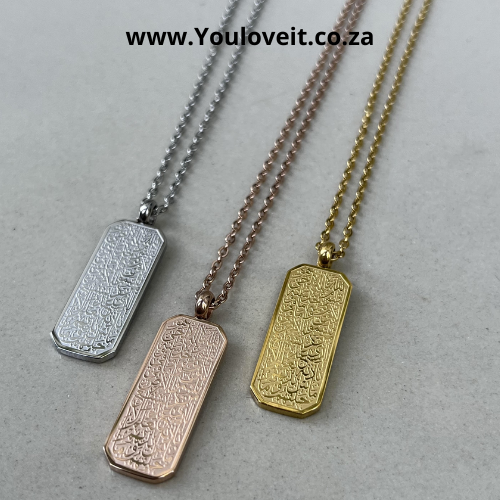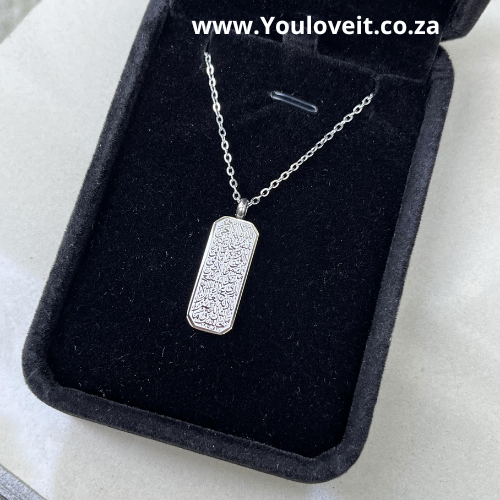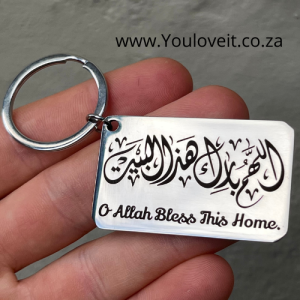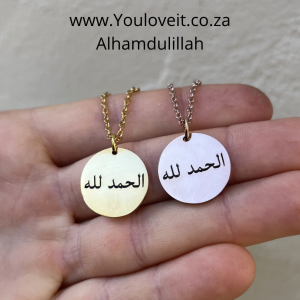Description
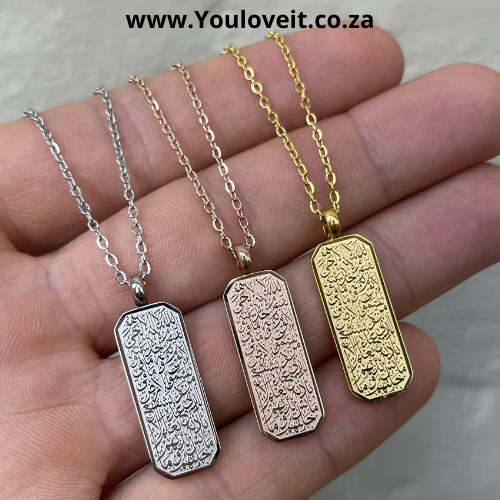
Sacred verses from the Quran embody profound wisdom, guidance, and divine inspiration. Explore the timeless beauty of these verses, each a beacon of light and spiritual reflection. From the eloquence of Surah Al-Fatiha to the majestic Ayatul Kursi, these sacred words offer solace, enlightenment, and a connection to the divine. Immerse yourself in the transformative power of the Quran’s verses, a source of spiritual strength and guidance for believers worldwide.
Islamic jewelry encompasses a wide range of designs and styles that draw inspiration from Islamic art, culture, and religious symbols.
Here are some common types of Islamic jewelry:
- Calligraphy Jewelry:
- Description: Calligraphy is a prominent feature in Islamic art, and it is often used in jewelry design. Islamic calligraphy may include verses from the Quran, the names of Allah (God), or other religious phrases.
- Arabic Name Jewelry:
- Description: Personalized jewelry with Arabic names is a popular choice. Individuals often wear jewelry featuring their names or the names of loved ones written in Arabic script. This adds a personal touch to the jewelry while reflecting Islamic cultural aesthetics.
- Evil Eye Protection Jewelry:
- Description: The concept of protection from the evil eye is present in various cultures, including Islamic tradition. These pieces often feature the iconic blue eye design.
- Islamic Symbol Jewelry:
- Description: Jewelry may incorporate various Islamic symbols, such as the crescent moon and star, the Kaaba, or the Hand of Fatima (Hamsa).
- Ayatul Kursi Jewelry:
- Description: Ayatul Kursi, a powerful verse from the Quran, is often featured in jewelry. Necklaces, rings, and bracelets may have the entire verse or selected portions inscribed, providing a tangible connection to the sacred words.
Islamic jewelry serves not only as a form of personal adornment but also as a means of expressing faith, cultural identity, and a connection to the rich artistic and religious traditions of Islam. The diversity of designs allows individuals to choose pieces that resonate with their personal preferences and beliefs.
The Muslim population in the Western Cape has historical roots, dating back to the arrival of Muslim communities during the colonial period and subsequent waves of migration. Cape Town, the capital city of the Western Cape, has a significant Muslim community, and there are also Muslims residing in other towns and cities across the province.



